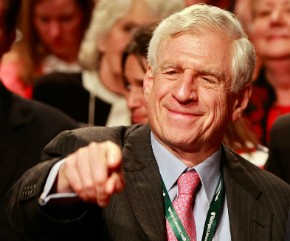Virtue politics

When former Republican senator John Danforth came to Chicago recently, I was part of a group that talked with him about religion and politics. Danforth is an Episcopal priest who served three terms in the United States Senate from Missouri and was the United States representative to the United Nations. In his first book, Faith and Politics, he wrote about the emergence of the religious right as a force in U.S. politics and in his own party in the ’80s. In a new book, The Relevance of Religion: How Faithful People Can Change Politics, he analyzes current political gridlock and suggests that the churches can effect positive change.
As Danforth spoke, I thought about how rare his brand of Republicanism is now—the Republicanism of Dwight Eisenhower, William Scranton, Nelson Rockefeller, Charles Percy, and Richard Lugar. Many of these Republicans were able to reach across the aisle and collaborate with Democrats. The Civil Rights Act of 1964, for instance, could not have passed without the support of Everett Dirksen, the conservative Republican senator from Illinois.
But today, says Danforth, the right wing of his party calls him a RINO, or “Republican In Name Only.” He believes that American politics is broken because of an ideological divide not only between the two parties but within the Republican Party. The Freedom Caucus, a group of 40 ultraconservative Republican congressional representatives, is holding Congress and the nation hostage by insisting on having its own way on matters of budget and fiscal policy.




